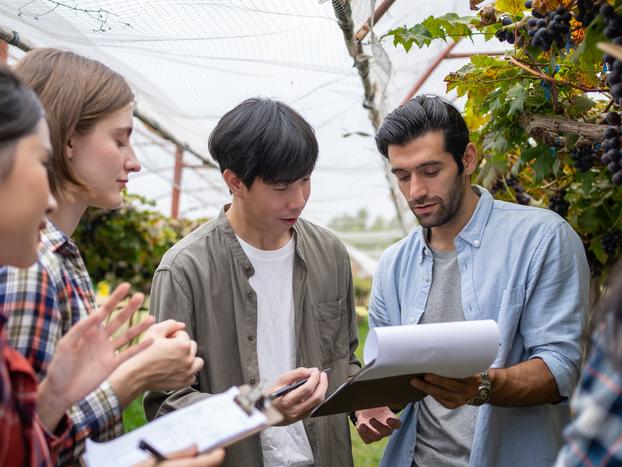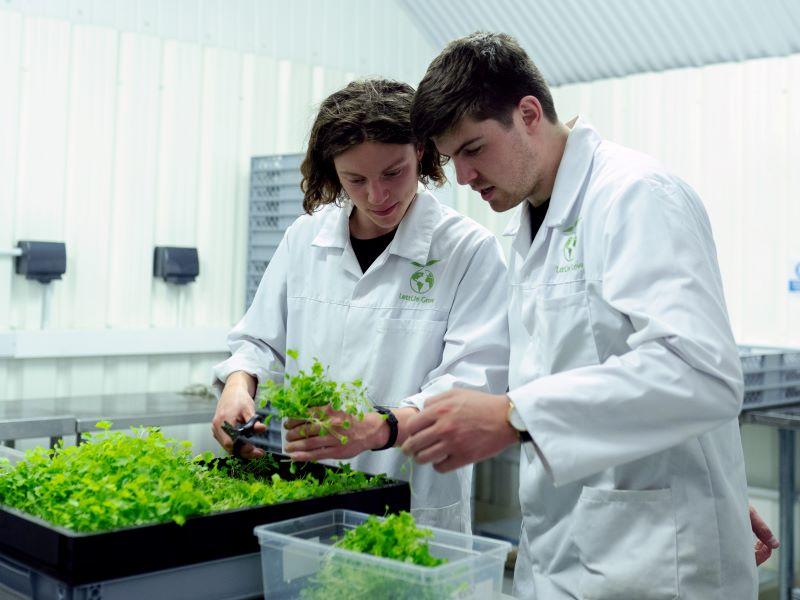
How to make public engagement work for early career academics
Academics need to be able to translate what they research to engage a wide range of audiences. But to do that, scientists must first find the public engagement shape that fits them and their schedule. Here’s advice for getting started
You may also like
If we academics believe our research is so important, then having the widest reach and impact is surely the goal. For promotion pathways as well as impact, we need to engage with and translate our research projects for a wide range of audiences. But for early career academics, especially those in STEM, this raises the question: how do you fit public engagement into an already busy schedule?
Here’s how to find an approach that suits you.
Where does a public engagement journey start?
Start now, not tomorrow.
As with any new skill, start your public engagement off small. Sign up to an existing initiative. Attend someone else’s public engagement activity. Many universities will host a science or arts festival at least once per year, supported by a wide range of exhibits and activities – so, join one of those. This activity does not have to be your specific research area for you to gain valuable experience and skills. STEM organisations are always looking for volunteers, with an achievable minimum time commitment and events that you can support rather than lead.
- Researchers need support to change the world – here’s how to provide it
- Steps to take to encourage more support for public engagement in research
- How to engage with the media and expand the impact of your work
Don’t worry about the international multimillion-pound team where you want to be in 10 years. Do something achievable and rewarding this year. Many STEM activities require minimal commitment, such as a 10-minute “meet the scientist” session where you simply talk about your research in an understandable, friendly way.
Keep your public engagement project focused and realistic
Starting your public engagement project realistically will help make the work manageable. Public engagement describes the diversity of ways in which a university community interacts with those outside the institution (have a look at the National Co-ordinating Centre for Public Engagement’s manifesto for public engagement).
Your “public” could be one or more of a range of audiences: the target group of your research, children in a certain age range, retirees, birdwatchers, patients, the hockey club. Identify and focus on your target audience and choose a format that works both for your budget (time and financial) and your audience: in-person or online, one-off or regular, an invite-only workshop or passers-by an exhibit, an independent endeavour or part of a bigger initiative such as the annual science festival.
Learn from the professionals. Public engagers, those employed specifically to support and deliver public engagement whether at your university or external, generally love what they do. They are passionate to share their knowledge and love science outreach. Seek them out. Have a chat about your ideas. In the process of going for a first public engagement grant, we met pretty much every member of staff on our university’s public engagement team to hear their ideas, input and feedback. Some departments also offer courses on how to deliver workshops, seminars and presentations. These can help you learn how to make your research accessible and understandable to non-specialist audiences.
Seek strength in numbers
You have to be in it to win it: do something, do anything! Public engagement does not have to be a huge time or financial commitment. For what became an international, inter-institutional workshop series, we started with one small, local event. But to build to that scale “I” became “we”, and we became a bigger we.
To maintain the manageability, build your team. Don’t do it alone. There’s strength in numbers. Whether it’s one other person or 10. Their ideas, network and time will multiply your contribution.
Make public engagement work for you
Maybe at this point, it’s all starting to sound like too much work. So, don’t let this be a one-goal behemoth; use it to meet multiple research and professional development goals. You might like to follow a recipe to success:
- Teamwork: It’s often beneficial to plan and deliver public engagement activities as a team. The workload is a lot more than just the “fun stuff” science communication. The logistics workload can exceed the workshop preparation and delivery workload. Think liaising with participants, venue bookings, catering, comms and promotion. Many hands make light work. A team also means you can match people’s individual skills with tasks. Someone who can take on web development tasks might not be the best person to facilitate a workshop.
- Scope: Many tasks can comprise a public engagement event. To make sure the participants get the best version of you, and that you’re not spread too thinly over many organisational tasks, match the type of engagement activity with resourcing.
- Seek funding: A diverse range of funding sources are available for engagement activities (for example, institutional funding through to external agencies). Often, a small pot of money can go a long way. We have obtained grants ranging from £1,000 to £25,000 to support public engagement activities. Seeking funding opportunities also provides bonuses of learning real grant writing, being a PI and project management experience; these are valuable not only for your skills but for your CV and future applications.
Enjoy the experience
Metrics and job performance aside, don’t forget to enjoy your public engagement journey. Yes, effective, meaningful public engagement will take up your time and resources; you will need funding, planning and a team. Public engagement is part of the research process and should be recognised within workload models, so that the hard work you put in is rightly recognised. The rewards of good public engagement are numerous: providing opportunity to connect with target groups, generating impact, developing grant development leadership skills, adding to your CV, and making an immediate difference to the lives of people.
Sien van der Plank is a senior research fellow at the University of Southampton. John Duncan is a research fellow at the University of Western Australia. Yanna Fidai is an earth observation scientist at Plymouth Marine Laboratory.
If you would like advice and insight from academics and university staff delivered direct to your inbox each week, sign up for the Campus newsletter.




